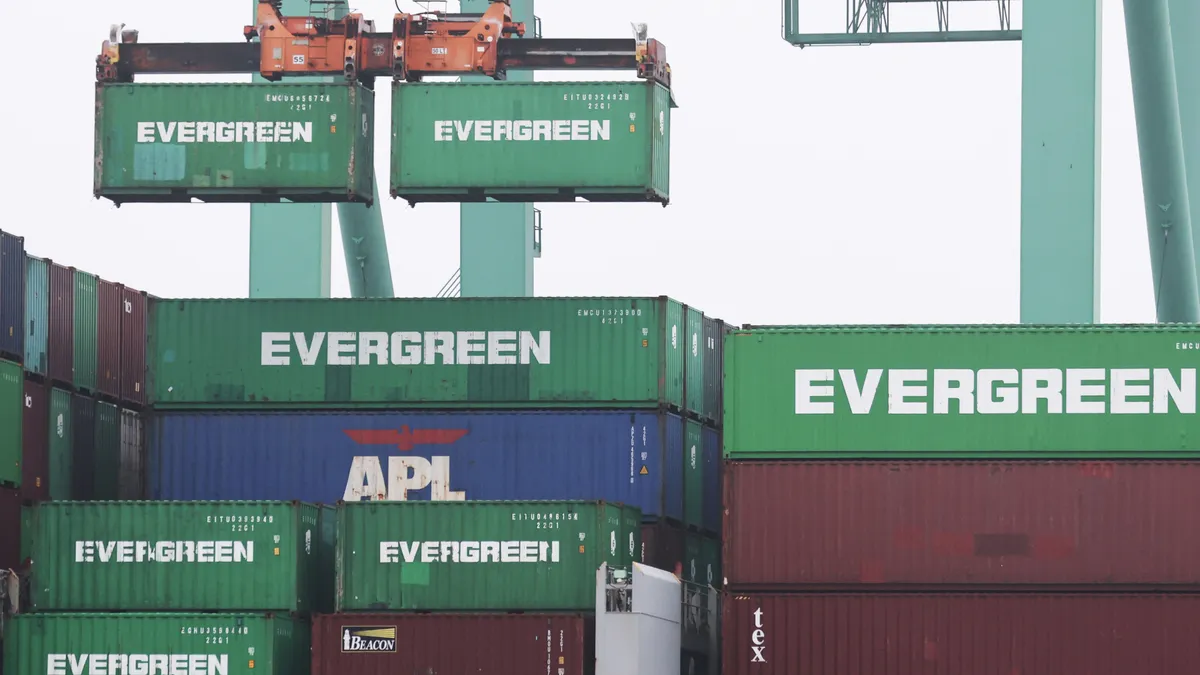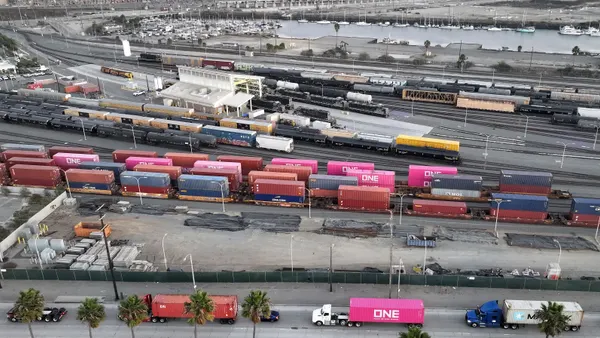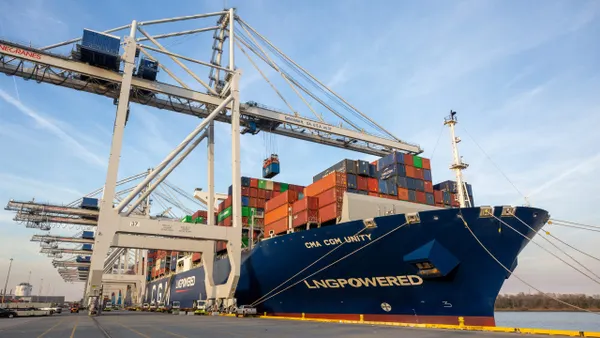Dive Brief:
- The head of the Port of Los Angeles is criss-crossing the country in a bid to reclaim lost cargo volumes as shippers continue to avoid the nation’s busiest West Coast port.
- Port of Los Angeles Executive Director Gene Seroka said at a media briefing Wednesday he’s “been on a whistlestop tour” over the past six weeks to assuage shipper fears around the potential impact from prolonged dockworker negotiations.
- “In the months ahead, we’re going to have to work harder and smarter to earn cargo back,” Seroka said. The Port of Los Angeles handled 639,344 TEUs in November, a 21% decline from the prior year.
Dive Insight:
The shadow of West Coast labor negotiations has shippers continuing to favor East Coast ports, reshaping U.S. cargo flow in the process. The Port of New York and New Jersey officially unseated Los Angeles as the nation’s busiest container port with record cargo volumes in August.
Los Angeles isn’t giving up the crown that easy, however.
“We need to get out and work for every pound of freight,” Seroka said. “Just like we collaborated with our partners to clear the backlog, we need a united industry push to demonstrate why L.A. should be our customers’ first choice.”
In his bid to regain cargo share, Seroka has met with retailers, manufacturers and other shippers from across the country that have historically relied on Los Angeles to “make sure they understand the ground truth” about port operations. He noted in particular that he’s spoken with stakeholders within the automotive industry, which is set for a major boom amid easing supply constraints and rising EV demand.
“We’ve got wide-open capacity here in Los Angeles, the productivity numbers look very good as well,” Seroka said. “Our dock workers are on the job every day pumping out the cargo that we do have in good order.”
Congestion has all but disappeared at the port, with rail schedules and truck dwell times largely returning to pre-pandemic levels, Seroka said. The port’s seen a 90% reduction in lingering cargo compared to last peak season, when overstuffed docks pushed officials to threaten a dwell fee.
Cargo volumes on the West Coast are expected to remain soft going into 2023. Imports will be especially slow beginning in late January when factories in China and Vietnam shutdown for annual New Year holidays.
Jeremy Nixon, CEO of carrier Ocean Network Express, said on the media call that factories may be closed longer than usual this year and that import volumes aren’t expected to recover until April or May.
“We'll have quite a long rain shadow afterwards because it will take time to get that production back up and running,” Nixon said.















